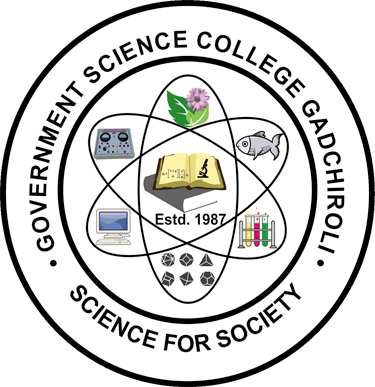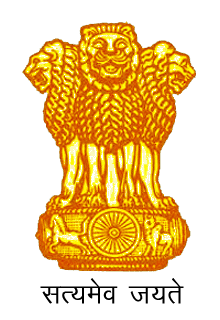Department of Zoology Department of Zoology offers courses for graduate, post graduate and doctoral studies. We teach and research whole organism biology from genes to ecosystems including: animal behavior, ecology, environmental science, evolution, development, physiology, parasitology and wildlife biology. We aim to provide a supportive and open atmosphere for everyone who works here, staff, students and visitors alike. We value all members of the Department and are working hard to enhance our diversity Vision To be an innovative and responsive to the educational and self development needs of the students To ensure the learning opportunities and promote the scientific and professional temperament To contribute to society through the pursuit of education, learning, and research at the highest levels of excellence. Mission To implement the student centric programmes which encourage the students to excel in higher education and research To provide excellent teaching and perform quality research Strategies Utilizing resources effectively to enhance the quality of teaching and learning Collaborating with national institutes, Universities and industries to enhance the academic environment B. Sc. - 3 year course - six semesters CBCS - Choice Based Credit System Semester based academic terms from June to November and January to May Affiliated to Gondwana University Gadchiroli Student intake capacity - B.Sc. I - 120, B. Sc. II - 120 and B. Sc. III - 120 M.Sc. - 2 year course - four semesters CBCS - Choice Based Credit System Affiliated to Gondwana University Gadchiroli Specialization - Animal Physiology Samester based academic terms from June to November and January to May Student intake capacity- M.Sc. I - 22 and M. Sc. II - 22 Research - Doctoral studies Recognized guide available in Zoology subject -Gondwana University Gadchiroli
"Dynamics of protein methylation in Drosophila proteome after exposure to nitric oxide stress” Start Up Research Grant (Young Scientists) Science and Engineering Research Board (SERB) 2015
Mahale, A., Khandeparker, R., Gauthankar, M., Paingankar, M.S. and Sreepada, R.A. (2023) Assessing the Changes in Protein Content During the Ensilage of the Indian Mackerel (Rastrelliger kanagurta) by Biological Method. Waste and Biomass Valorization, 1-13. https://doi.org/10.1007/s12649-023-02173-w (Impact Factor 3.5)
Gauthankar, M., Khandeparker, R., Shivaramu, M.S., Salkar, K., Sreepada, R.A and Paingankar, M.S. (2021) Comparative assessment of amino acids composition in two types of marine fish silage, Scientific Reports, (2021) 11:15235 (Impact Factor 4.99)
Sudasinghe, H., Dahanukar, N., Raghavan, R., Senavirathna, T., Shewale, D. J., Paingankar, M.S., Amarasinghe, A., Pethiyagoda, R., Rüber, L., Meegaskumbura M. (2021) Island colonization by a ‘rheophilic’ fish: the phylogeography of Garra ceylonensis (Teleostei: Cyprinidae) in Sri Lanka. Biological Journal of the Linnean Society, 132 (4): 872-893 (Impact Factor 2.138)
Paingankar, M.S., Ahire, K., Mishra, P., Rajpathak, S. and Deobagkar, D.D. (2020) Microbial diversity analysis in the oxygen minimum zones of the Arabian Sea using metagenomics approach. Current Science, 118(7): 1042-1051. (Impact Factor 1.102)
Verma, C., Kumkar, P., Raghavan, R., Katwate, U., Paingankar, M. S., Dahanukar, N. (2019) Glass in the water: molecular phylogenetics and evolution of Indian glassy perchlets (Teleostei: Ambassidae) Journal of Zoological Systematics and Evolutionary Research, 57(3):623-631. https://doi.org/10.1111/jzs.12273 (Impact Factor 2.288)
Paingankar, M.S. and Deobagkar, D.D. (2018) Pollution and environmental stressors modulate the microbiome in estuarine mangroves: a metagenome analysis. Current Science 115(8): 1525-1535. doi:10.18520/cs/v115/i8/1525-1535
Parashar, D., Paingankar, M. S., More, A., Patil, P. and Amdekar, S. (2018) Altered microRNA expression signature in Chikungunya-infected mammalian fibroblast cells. Virus Genes, 54(4): 502-513 DOI 10.1007/s11262-018-1578-8.
Keskar, A., Raghavan, R., Paingankar, M. S., Kumkar, P., Katwate, U., Jadhav, S., Padhye, A., Dahanukar N. (2018) Molecular phylogeny unveils hidden diversity of hillstream loaches (Cypriniformes: Cobitoidea) in the northern Western Ghats of India. Meta Gene 17: 237-248.
Suranse, V., Sawant, N. S., Paripatyadar, S. V., Krutha, K., Paingankar, M. S., Padhye, A. D., Bastawade, D. B. and Dahanukar, N. (2017) First molecular phylogeny of scorpions of the family Buthidae from India. MITOCHONDRIAL DNA PART A, 28(4):606-611. http://dx.doi.org/10.3109/24701394.2016.1149830.
Panikar C. S., Paingankar M. S., Deshmukh S., Abhyankar, V., Deobagkar, D.D. (2017) Assessment of DNA methylation in different developmental stages of Drosophila melanogaster. Current Science 112(6):1165-1175.
- Keskar, A., Kumkar, P., Paingankar, M. S., Padhye, A. and Dahanukar, N. (2015). Length-weight and length-length relationships of seven loach species (Teleostei: Cypriniformes) from five localities in northern Western Ghats, India. Journal of Threatened Taxa 7(15): 8205–8220.



